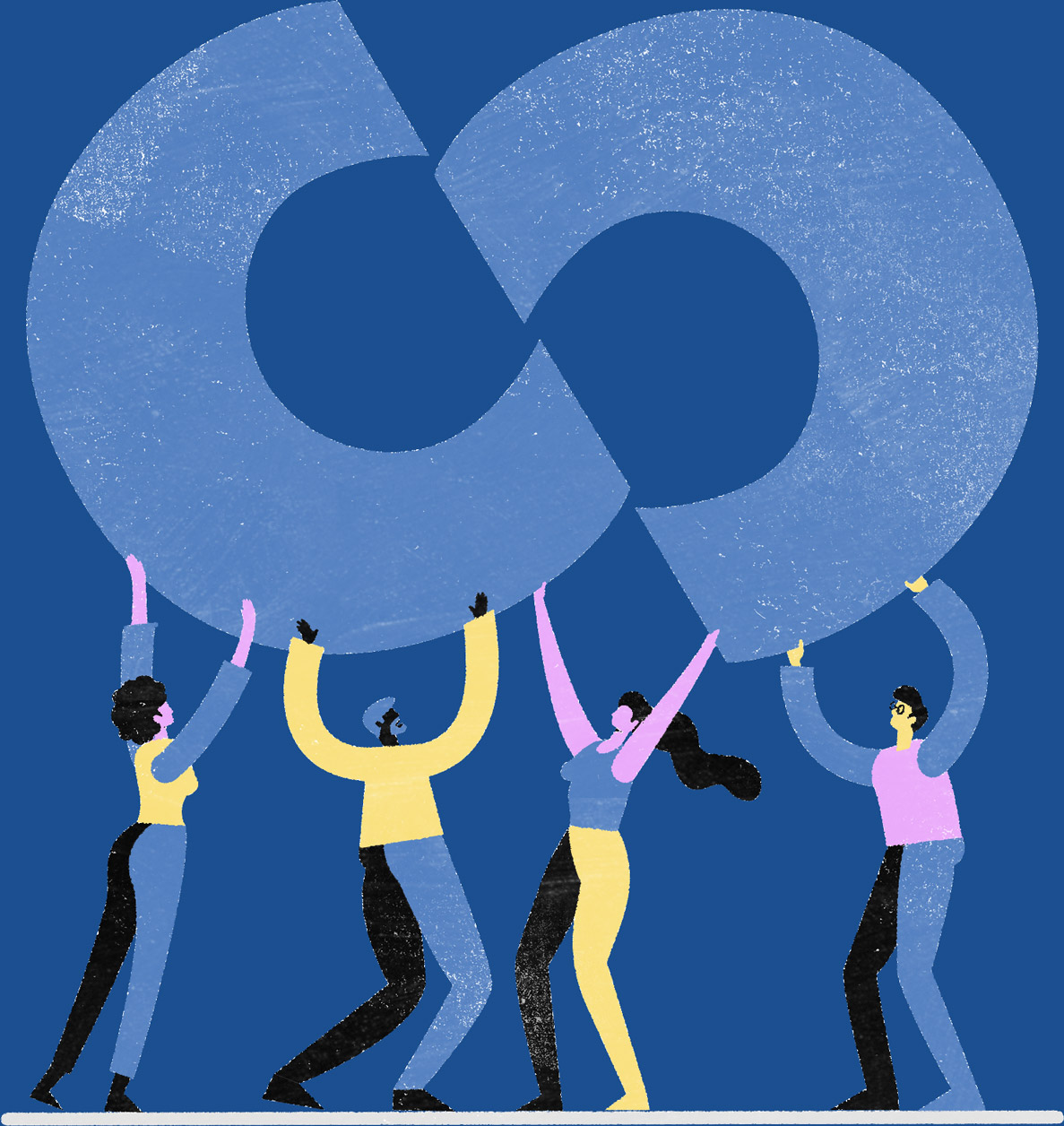Literature


Reading Recommendations based on Lit Hum Favorites
We asked Columbia’s Lit Hum faculty to offer recommendations of Core-like texts to enable you many stimulating months and years of reading literature.
See what they shared; the left-side shows the Core inspiration and the right is what you might like!
Feel like something's missing from the list? Email us your recommendations!
|
If you liked … |
You may also like … |
|
Aeschylus, Oresteia |
Ta-Nehisi Coates, Between the World and Me (2015) What does justice look like for Black people living in post-slavery America? |
|
Andalucian Poetry |
Three Chinese Poets: Wang Wei, Li Bai, and Du Fu (translated by Vikram Seth, 1992) A collection of eighth-century Tang poets. |
| Augustine, Confessions |
Jean-Jacques Rousseau, Confessions (1782) “No man knows himself less.” – David Hume Kamo no Chomei, Hojoki (An Account of My Hut) (1212) A thirteenth-century Japanese mixture of memoir and essay about Chomei’s move toward Buddhism and retirement from the world. |
|
Austen, Pride and Prejudice |
Any other novel by Austen. Check out The Complete Works of Jane Austen for a listing. Mariama Ba, So Long a Letter (1979) An interesting look at the social pressures on marriage in mid-twentieth century Senegal. Warning: not a happy ending. Curtis Sittenfeld, Eligible (2016) A modern retelling of Pride and Prejudice. Fun summer reading. |
| Cervantes, Don Quixote |
Jorge Luis Borges, Fictions / Ficciones (1956) “Reading the work of Jorge Luis Borges for the first time is like discovering a new letter in the alphabet, or a new note in the musical scale.” – Jane Ciabattari in BBC François Rabelais, Gargantua and Pantagruel, trans. Screech (1532-1564) “Rabelaisian rabble-rousing is founded on the assumption that the humourless are not yet wise - these novels insist you learn to laugh.” – Lucy Ellman in The Guardian Jane Austen, Northanger Abbey (1817) A young woman who starts taking the trashy adventure/romance novels she reads much too seriously. |
|
Dante, Inferno |
Giovanni Boccaccio, Decameron (1353) “Shops stood empty. Churches shut down. An estimated sixty per cent of the population of Florence and the surrounding countryside died...'Let’s get out of here,' Pampinea, the eldest, says. 'Let’s go to our country estates.'” – Joan Acocella in The New Yorker If you choose to pick up this classic, check out our audio intro and reading guide for Day 3, Story 10. Seamus Heaney, “Station Island” (1984) This poem-sequence, set in a pilgrimage site known as St. Patrick’s Purgatory, is inspired directly by Dante, and is concerned, among other things, with the victims of sectarian violence during The Troubles in Northern Ireland. In the final poem (XII), James Joyce appears as a sort of Virgil-figure to provide Heaney with guidance. Electronic edition available. Monkey (Journey to the West) An epic tale of a Chinese monk who travels to India to retrieve Buddhist scriptures and meets various demons and other creatures along the way. He is accompanied by his faithful companions Monkey and Pigsy, on what is both a literal and metaphorical journey to enlightenment. |
|
Fyodor Dostoevsky, |
Dostoevsky, Notes from Underground (1864) A novella highly regarded by the French existentialists, Notes introduces the underground man, an unreliable first-person narrator, who champions free will and polemicizes against the view that man is rational creature who always acts in his own self-interest. Dostoevsky, The Brothers Karamazov (1879-80) A gripping 800-page novel that “has engrossed and moved numerous generations of readers. Although Dostoevsky may have had an appetite for religious, philosophical, and moral questions, he did so as an artist who cared passionately about depicting the surface of character as well as its depth and who explored the innumerable ramifications of single, often simple acts.” – Robin Feuer Miller in The Brothers Karamazov: Worlds of the Novel Leo Tolstoy, Anna Karenina (1877) Another gripping 800-page Russian novel. When asked what the novel is about, Tolstoy famously replied that if he could answer that question he would not have written the novel. Vikram Seth, A Suitable Boy (1993) A gigantic historical novel set in India during partition about love, loss, and family. |
|
Gospels of Luke |
The Ramayana A fundamental text of the Hindu religion, sometimes classified as history or epic. Described by one Lit Hum student as “a guilty pleasure” and “much better than the Iliad and the Odyssey.” |
| Herodotus, Histories |
Marco Polo, Travels (1298) Not just a pool game or a video messaging app, the Venetian traveler Marco Polo casts his own ethnographic eye around the court of Kublai Khan. |
|
Homer, Iliad |
Beowulf, trans. Seamus Heaney (c8) “Scattered among Beowulf's desolate moors and marshes are a few besieged centres of human culture, ceremony and solidarity - the lords’ lighted halls which hold out against the encroaching dark.” – Terry Eagleton in London Review of Books Dan Simmons, Ilium (2003) “Simmons fast-forwards into an omni technical future to have fun with the ancient Greeks.” – Justina Robson in The Guardian |
|
Homer, Odyssey |
Margaret Atwood, Penelopiad (2005) “In a splendid contemporary twist to the ancient story, Margaret Atwood has chosen to give the telling of it to Penelope and to her twelve hanged Maids, asking: ‘What led to the hanging of the maids, and what was Penelope really up to?’” – Penguin Random House Olaudah Equiano, The Life of Olaudah Equiano (1789) “He gets taken up by white society and patronised by the great and the good, but he is never quite free of floggings and incarceration. Nevertheless, he does manage to save the money that will buy his freedom.” – Robert McCrum in The Guardian Derek Walcott, Omeros (1990) An epic poem narrated by a modern Homer/Omeros. |
|
Marie de France, Lais |
Yvain and the Lion A French story of a knight who goes on adventures with his pet lion. Sir Gawain and the Green Knight A middle English tale of King Arthur’s court Murasaki Shikibu, The Tale of Genji (1008) Considered the world’s first novel: the life and many, many loves of Prince Genji. |
|
Milton, |
Spenser, The Fairie Queene (1590) The first epic in English, and as dizzying in its own way as Milton’s rebuttal of its allegorical form. |
|
Montaigne, Essays |
Eve Babitz, Eve’s Hollywood (1974) “Dear Joseph Heller, I am a stacked eighteen-year-old blonde on Sunset Boulevard. I am also a writer.” Carmen Maria Machado, In the Dream House (2019) “When does it begin? you think. Then you realize, It’s already begun.” – Katy Waldman in The New Yorker Erasmus, The Adages A near contemporary of Montaigne, Erasmus reflects on common sayings and what they mean. Primo Levi, The Drowned and the Saved (1986) A collection of essays by an Italian holocaust survivor. Yoshida Kenko, Essays in Idleness (Tsurezuregusa) A fourteenth-century Japanese collection of essays. James Baldwin, Notes of a Native Son (1955) & Go Tell it on the Mountain (1953) Baldwin was an African American essayist, who is a brilliant and opinionated stylist. |
|
Morrison, Song of Solomon |
Gabriel García Márquez, Love in the Time of Cholera (1985) “It was inevitable: the scent of bitter almonds always reminded him of the fate of unrequited love.” – trans. Grossman, p. 7. Any other novel by Morrison. Check out "Where to Start If You Haven't Read Enough of Toni Morrison's Books" by TIME magazine. Betty Smith, A Tree Grows in Brooklyn (1943) A novel about Irish and German immigrants in early 1900s Brooklyn with some unusual parallels to Morrison’s novel. |
|
Ovid, Metamorphoses |
Nina MacLaughlin, Wake, Siren (2019) “... let us show you because it’s easy when you’re reading through the Metamorphoses for your eyes to glaze over. Oh, another nymph gets chased, she’s gonna get raped and then she’s turned into a rock or stream or whatever... So stepping into it, being specific—what does this feel like?—you can’t glaze over it.” |
|
Plato, Symposium |
Pierre de Marivaux, The Island of Slaves (1725) “Marivaux's scepticism, irony and fascination with money and sex make him seem peculiarly modern.” |
|
Sappho, If Not, Winter |
Sylvia Plath, The Collected Poems (pub. 1981) “Peel off the napkin |
|
Shakespeare, King Lear |
Shakespeare, Richard II (ca. 1585) Shakespeare in the Park canceled the live summer production, but you can now enjoy the play in a theatrical reading available on WYNC Studios. James Shapiro CC'77 serves as an audio guide. |
| Shakespeare, Macbeth |
Pedro Calderon de la Barca, Life is a Dream (1636) A Spanish contemporary of Shakespeare. |
|
Shelley, Frankenstein |
Wilkie Collins, The Woman in White (1859) “Each minute I spend away from the book pretending to be interested in everyday life is a misery.” – Nora Ephron Ralph Ellison, Invisible Man (1952) “The unnamed black protagonist of the novel, set between the South in the nineteen-twenties and Harlem in the nineteen-thirties, wrestles with the cognitive dissonance of opportunity served up alongside indignity.” – Clint Smith in The New Yorker |
|
Sophocles, Antigone |
Kamila Shamsie, Home Fire (2017) A rewriting of Antigone in contemporary London, “Home Fire builds to one of the most memorable final scenes I’ve read in a novel this century.” – Dwight Garner in NYT |
|
Virgil, Aeneid |
Bhāravi, Arjuna and the Hunter A warrior from a displaced family undertakes a journey out of duty, guided by a divine parent. Bhāravi’s poetry is rapturous, and the paradox at the poem’s heart – can one rightfully pursue ascetic self-discipline if one’s aim is worldly victory? – offers a way into distinctive concerns of the Sanskrit intellectual tradition. Interested in reading? Contact us for a pdf version of the first 12 Cantos out of 18. |
| Woolf, To the Lighthouse |
Shirley Hazzard, The Transit of Venus (1980) “Nothing gave me as much happiness as Shirley Hazzard’s The Transit of Venus. When I first devoured the novel, after its publication in 1980, I grew increasingly melancholy—never again would I have the pleasure of reading it fresh.” – Tad Friend in The New Yorker Zora Neale Hurston, Their Eyes Were Watching God (1937) Different in style, but as stylistically radical, mingling a highly poetic narration with a use of dialect we don’t see on the Lit Hum syllabus. William Faulkner, As I Lay Dying (1930) Listed in The Guardian's best 100 novels. "From the first line, the reader is pitched into the deep south [...] Welcome to a brutal, backwoods community of impoverished cotton farmers in 1920s Mississippi." |

Please log in to comment.